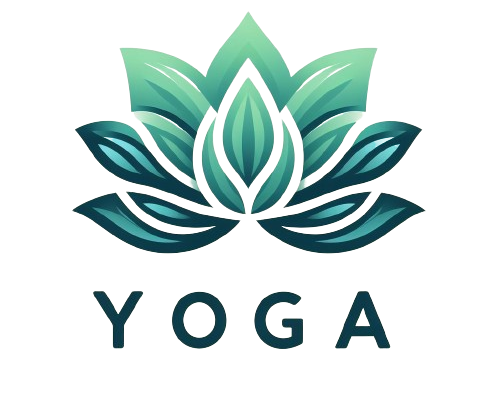Let’s talk about something we all try to avoid but often can’t: pain and illness. When your body’s throwing a fit or life hands you the sour lemons of sickness, the typical advice is to pop a pill or chug that vitamin-rich smoothie. But what if there’s another way, one that involves zero side effects and costs absolutely nothing? Enter meditation, the ancient mind-practice that’s making a modern comeback.
What’s Meditation Got to Do With My Aches?

The connection between meditation and pain relief is rooted in the mind-body interaction. When you meditate, you shift your focus and alter your response to pain. It’s not about ignoring the discomfort but rather changing your relationship with it. By engaging in regular meditation practice, you can train your brain to process pain differently. Neuroscientific research has suggested that meditation can lead to physical changes in the brain, including increased gray matter in areas associated with pain processing and control.
Meditation can help in managing the emotional response to pain. Chronic pain often leads to feelings of frustration, depression, and anxiety, which can exacerbate the perception of pain. Through meditation, you can learn to calm your mind, reduce stress hormones, and cultivate a more relaxed state of being. This relaxation response can lessen the intensity of pain and improve your overall quality of life.
For those struggling with aches and pains, mindfulness meditation, in particular, can be quite beneficial. This form of meditation encourages practitioners to observe their present-moment experience with acceptance, rather than judgment or avoidance. By becoming more aware of physical sensations and acknowledging them without resistance, you may find that your pain becomes more manageable. The alleviation comes not from the pain disappearing but from developing a more composed and mindful approach to the sensations.
The practice of meditation is diverse, encompassing techniques such as focused attention, where you concentrate on a single point, and open monitoring, which involves paying attention to all aspects of your experience without attachment. Through these practices, those aches that seem overwhelming may begin to fade into the background, as the peace and equanimity fostered by meditation take the center stage in your consciousness.
Meditation is a powerful, non-pharmacological tool that can be part of a comprehensive approach to pain management, complementing traditional medical treatments and offering a holistic path toward relief and improved well-being
Getting Started
Diving into meditation is simple, and you won’t need to spend a dime. Here’s the breakdown:
- Location, location, location:
Find a quiet spot where distractions are yesterday’s news. Your room, a park, or even a cozy corner can be perfect.
- Make Time:
Just five minutes a day could kick things off. Build up as you get comfy with the practice.
- Strike a Pose:
Sit or lie down; just ensure your posture says, “I’m relaxed, man” and not “I’m about to take a nap.”
- Breathe Like You Mean It:
Focus on those breaths. Inhale the good vibes, exhale the “ouch” and the “ugh.”
- Mind on a Leash:
Thoughts will wander, and that’s okay. Gently nudge ’em back to your breathing or a mantra if that’s your jam.
Types of Meditation to Match Your Vibe
Mindfulness Meditation: stay in the present, my friend. What’s happening now is your only gig. The pain or discomfort? Acknowledge without judgment and breathe through it.
Guided Visualization: close those peepers and let your mind escape to a happy place. Maybe you’re chillin’ on a beach or snuggled in a mountain cabin. Safe and serene spots in your head can sometimes translate to less pain in your body.
Body Scan Relaxation: top-to-toe, focus on each part of your body. Thank it for holding up and encourage it to unwind. Yeah, toes need love too.
Loving-Kindness Meditation: direct all that warm, fuzzy affection toward yourself and others. Pain often feels isolating, but connecting with kindness can be like a band-aid for the soul.
No Pain, No Gain? More Like “Know Pain, Less Pain”
Living with pain or struggling with illness can make you feel like you’re stuck in a glitchy video game – constantly battling the boss level. Meditation, though, can offer cheat codes. By homing in on your breathing and guiding your focus, you’re essentially training your brain to place less emphasis on the pain. It’s like turning down the pain-o-meter’s sensitivity.
Science joins the meditation fan club with a resounding “Yeah, kinda does!” MRI scans reveal that regular meditators play on a different level. They show reduced activity in the brain’s pain-processing centers. There’s something about tuning in that tunes out the “ow.”
When Meditation Teams Up With Modern Medicine
Incorporating meditation into your health regimen does wonders when combined with modern medical treatments. It’s a complementary practice, meaning it enhances and supports your existing healthcare plan rather than replacing it. For those on medication or undergoing various treatments, meditation can serve as a valuable ally, working synergistically to improve outcomes. It’s like adding a reinforcement to the team, a boost that could help accelerate recovery, enhance the effectiveness of treatments, and potentially even reduce the required dosages of medication over time due to its stress-reducing benefits.
Meditation’s role in pain management and recovery is backed by an increasing body of scientific evidence. When practiced alongside conventional medicine, it can lead to a more holistic healing experience. For example, in the treatment of chronic pain, medications may alleviate the physical symptoms, but they often fall short in addressing the psychological and emotional components of pain. Meditation can fill this gap by helping patients cope with the stress of chronic pain, possibly reducing the overall pain experience.
Meditation has been associated with lower levels of stress hormones, such as cortisol, which not only helps in pain management but can also aid in faster healing and recovery. Stress can slow down healing processes, increase recovery times, and even compromise the immune system, whereas meditation’s role in reducing stress can counter these effects.
Patients suffering from conditions like hypertension, heart disease, and diabetes, among others, have reported benefits from the integration of meditation into their treatment regimens. Meditation can improve the regulation of blood pressure, enhance cardiac function, and assist in blood sugar control, offering another layer of intervention that meshes well with other medical therapies.
Meditation can contribute positively to mental health. When patients face serious illnesses, anxiety, and depression can sometimes follow. Meditation’s calming effects are valuable for maintaining a stable mental state, helping the body to heal in a more rounded fashion. For those facing surgery or invasive treatments, the practice can provide pre-operative calm and post-operative recovery support, improved pain tolerance, and even lead to shorter hospital stays.
Health practitioners are increasingly recognizing the benefits of this mind-body intervention. Many doctors now recommend meditation as a part of integrative medicine, which combines conventional medical treatments with complementary practices to address the health of the whole person.
When meditation is teamed up with modern medicine, it empowers patients to take an active role in their health and healing, offering a sense of control and participation that is both psychologically beneficial and potentially healing in and of itself. While it’s not a cure-all, it’s certainly a valuable player in the multidisciplinary approach to health and wellness.
